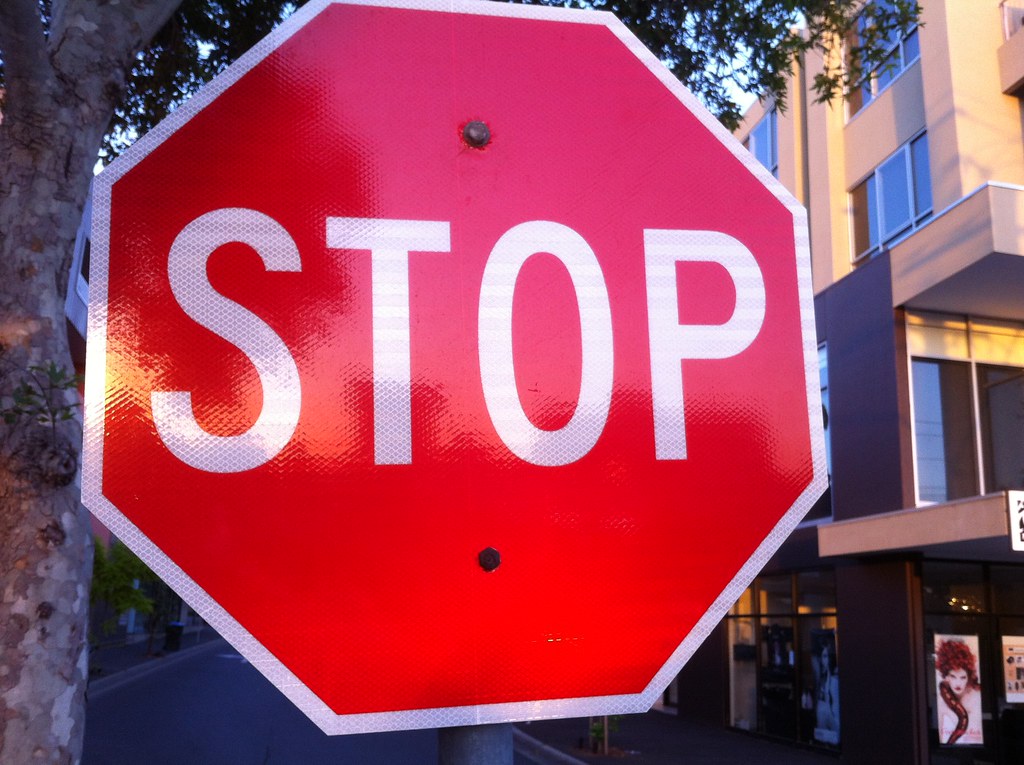 |
| Photo credit: guidancefs on Flickr |
- STOP: Whatever thought just came to the top of your head, just stop. Don’t tweet. Don’t blog. Don’t comment. If someone is calling out your words, there’s a reason, even if you don’t agree with it. So stop. Don’t respond.
- LISTEN: It may not be possible for you to read the critiques (think of them as critiques, not attacks.) They can hurt, and some of us don’t have the mental well-being to handle those comments unfiltered. So ask a friend to do it and give you an overview. Someone feels hurt. Your words caused it. You need to know why.
- APOLOGIZE: This is hard to do, but do it. Apologize. On Twitter, on your blog, whatever avenue you have open to you. Don’t turn it into “this was my intent so don’t be mad at me” post. It’s okay to explain yourself, but that needs to be very secondary to apologizing for the hurt you’ve caused and promising to do better next time.
- LEARN: This might be the most difficult part. You have to learn from your mistake. Maybe your intent wasn’t to hurt anyone, but you did. You need to learn why, through listening to what they have to say and doing more investigation into the particular aggression you committed. Our internal biases are built on years of society telling us untrue things. We’ve been propped up and rewarded for believing some hurtful crap. It’s time to unlearn those biases. Google the subject matter at hand. Explore the countless writing resources out there that explain some of the very microaggressions we writers fall into without meaning to. But it is imperative that we learn and do better, otherwise we are just fulfilling an endless cycle of hurt and anger for all parties involved.
We have an obligation to our readers to provide the best books and social media profiles that we can, and this includes supporting readers of many different identities. Identities we may not share, but choose to write or talk about. We have a long reaching power to affect teens with our words. Alienating them, hurting them, causing them to question who they are, is not what I want to do with that power. I’d rather show them the love and support they need and deserve. Let that be your literary legacy.
What do you think?
Jennifer Austin is a YA writer who used to keep her little sisters up at night by telling them long, fantastical stories. Now she writes them down. And lets her family sleep. She can most often be found sitting in a patch of sunshine weaving new worlds, or trying to make sense of the current political one. Find her at Jennifer Austin-Author or @JLAustin13
Twitter-sized bite:
So you've been called out—@JLAustin13 talks about how not to make it worse on @Ava_Jae's blog. (Click to tweet)








No comments:
Post a Comment